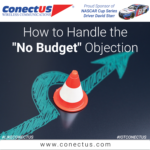Do you use effective questioning techniques that discover the buyer’s needs, wants, and desires, or do your customers feel bullied and interrogated? Can you get buyers talking freely, or do they give you short answers with little content? Learn to question your buyers with effective sales skills that lead you to the benefits the buyer wants, and help you to close the sale at the same time.
Many sales courses tell the delegates to start with open questions that begin with who, what, where, when, how, and why. Think of a question about your product that starts with one of the above words. Could the question be answered with one word or just a very short sentence? Many questions starting with these words can be answered very briefly. They do not encourage the buyer to talk. A low reactor-type customer will not open up when asked this style of question.
So how do you get your prospect talking and telling you about themselves, and their wants, needs, and desires. It’s easy, just do what you would in casual conversation with friends. Use a question that encourages the buyer to open up and give you more than just a short answer. This is a great sales skill to have that will help you close more sales. Start your questions with, tell me about, or, give me an idea. Ask them to, build you a picture, or, describe it for you. How about, explain to me, and, bring me up to speed. Think of a question about your product that starts with one of the above phrases. It should be difficult to answer with a short sentence or just one word?
The key is to get the prospect talking and then give them direction. You don’t want a stop-start process that interrupts the flow of the conversation. Once you have them opening up to you, use questioning techniques that guide them to where you want them to go. Move them towards describing their needs, wants, desires, and what they are currently dissatisfied with.
The next questions to use in the sales process will give the conversation direction. These are the who, what, where, how, and when questions. They elicit more detail and give direction to the now-flowing conversation. And remember, this is a conversation, not an interrogation. These sales questions should be open-ended and will give you information on the more general topics brought out by the opening questions. For example, what are you looking for, when do you do that, how important is that. All in response to, and focused on, the areas raised by the prospect.
Now you want more detail on the benefits the buyer is looking for. You want to ask open sales questions, on specific subjects, to start narrowing down the information. Think of the sales questioning process as a funnel. You have started with a wide-open, conversation-provoking question. Then narrow the possible answers slightly with the where, what, how, type questions. Now you close the funnel a little more and look for tighter specifics. You ask questions such as, what size, how many, who else uses it.
You can now get to the real specifics, and fill in the gaps in the information you have. Ask alternative questions like, red or blue, Monday or Wednesday. Offer specific suggestions and ideas and look for their responses. Use direct questions that require yes or no answers. When you think you have all the information on one particular subject you can check your understanding of their needs. Then summarise and look for approval and agreement.
You may have only covered one area of the needs that they gave you in response to your opening question. Think of this as one funnel that you have completed. If there are more needs areas go back and start another funnel. Do this until you have covered all the topics related to the benefits they want that your opening questions brought out. After each funnel check your understanding of what they want. When you have exhausted all the benefits and needs topics, summarise and check your understanding of all the needs, wants, and desires that you have discovered.
This also helps towards the closing of the sale. You are gaining agreement that this is what the customer wants. Depending upon your product and your market you can gain agreement from the buyer. You can ask, in your own words, that if you can provide the needs you have just summarised are they in a position to buy from you. In a market where it is appropriate, you can ask the, If I Can question. If I can provide all these benefits will you buy from me today? But only if it is suitable for your product and your marketplace. Gaining this level of commitment throughout the sale makes closing the sale so much easier. This is how top sales professionals make selling look so simple, and why they close so many sales.
The above sales questioning techniques make the sales process more pleasant for the buyer. Compare the smooth style of communication, and letting the customer talk as you guide them, with the short sharp questioning techniques used by many inexperienced salespeople. When you ask a sales question that needs only a short answer you get the stop-start sales meeting. Pauses and silences, no real communication. The buyer will feel like they are being interrogated or completing a questionnaire. When you ask several individual questions in succession the customer will feel stressed. This is because they are having to think before each answer. They feel like they are on a high-pressure quiz show. When you use conversation style sales skills the customer feels relaxed, as they would in an informal setting. When you talk in a flow of communication about one topic, down one funnel at a time, there is no stress. Just an exchange of information, gently brought out using an effective sales questioning process.
Are you interested in selling Verizon Wireless services? Call us at (855) SELL-VZW or fill out the form below. We look forward to talking to you soon!



